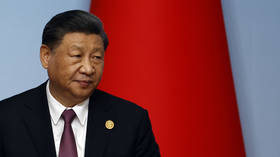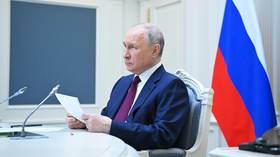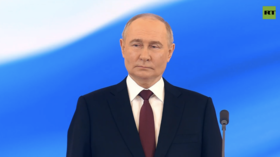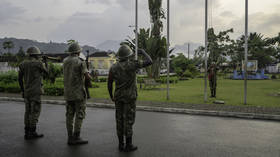Xi hits out at ‘color revolutions’

Members of the Shanghai Cooperation Organization should resist outside attempts to stage uprisings, Chinese President Xi Jinping said on Tuesday in an address at the SCO’s virtual summit.
“It’s necessary to categorically oppose any attempts to interfere from the outside and inspire color revolutions under any pretext,” Xi stressed.
During his speech, the Chinese leader also criticized the practice of imposing sanctions without UN approval, and called on SCO members to increase their trade in national currencies.
The Shanghai Cooperation Organization is a Eurasian political, economic and security organization, which unites China, Russia, India, Kazakhstan, Kyrgyzstan, Pakistan, Tajikistan and Uzbekistan.
It’s currently world's largest regional bloc in terms of geographic scope and population. The SCO was expanded further during the current summit with the official inclusion of Iran.
Xi has spoken out against so-called ‘color revolutions’ on several occasions. Late last year, he stated that Beijing was “categorically opposed” to attempts to “undermine the peaceful life of people” under the guise of protecting human rights.
The term ‘color revolution’ has been used mainly to describe uprisings in post-Soviet states, with the goal of toppling governments that oppose the interests of the US and its allies, but has also been applied to countries outside the region. Most of the revolts have involved a large degree of support from US-funded NGOs and American intelligence agencies.
The Rose Revolution in Georgia in 2003 and Ukraine's Orange Revolution, which took place a year later, are two of the best-known examples.













